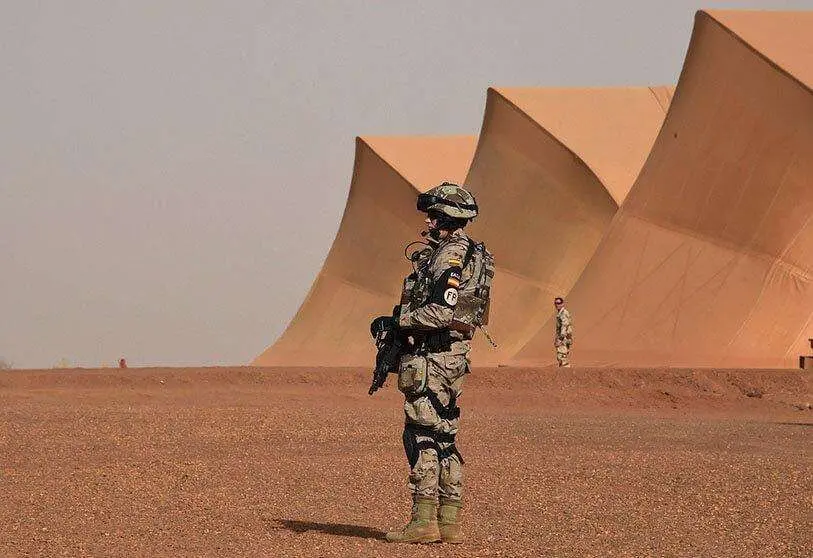Morocco and Algeria: key actors in the Sahel

Despite multiple attempts, the countries of the Sahel region have never succeeded in building a common security strategy. Thus, the lack of effective regional military cooperation has allowed terrorist groups and traffickers to asymmetrically challenge the security forces of Sahelian states and their international allies, among whom there is no clear convergence either.
Morocco will never intervene militarily in the Sahel and never has. Its foreign policy is one of non-belligerence, of not supporting armed intervention in Africa or Russia or any other continent; moreover, since always and since 2017 when Morocco joined the African Union, the Moroccan kingdom continues to advocate the peaceful settlement of disputes.
Morocco's intervention in the Sahel focuses on several aspects:
- Development and humanitarian cooperation: in Mali, Chad and Niger by supporting the governments in the training of civil servants and in the training of doctors and the scholarship programme. Morocco hosts more than 10,000 African students on scholarships from the Moroccan government studying in Morocco in various disciplines.
- Through the religious aspect with the Mohammed VI Foundation for African imams where they are trained to avoid radicalisation or misinterpretation of Islam and the The Quran, through moderate Islam.
- Business: Morocco is the second most important investor on the entire African continent. In Mali, on the border with Mauritania, it exports and there are several Moroccan businessmen who export fresh produce to Mali at low prices. And there are more projects in Chad, Niger and Mauritania, which receive a lot of Moroccan investment.
- Training: where military personnel, gendarmes and police from several African countries are trained in the fight against terrorism, as in the case of the Burkina Faso police, who were trained at the Kenitra Police Academy before the military coup.
On the other hand, we have seen how in recent years Morocco has sought to use its leadership to become a major power not only in the Maghreb and Africa, but also in the Mediterranean basin. And we have to thank it for being Europe's guardian in terms of the fight against Jihadist terrorism and the fight against irregular immigration, which comes mainly from the Sahel and which is carried out in exchange for large amounts of aid and concessions, mainly from the European Union and Spain.
In particular, Algeria's role in the Sahel must be analysed, as it has strengthened its economic and political relations with Russia. It should be remembered that Algeria borders the Sahel, a place of special interest for the European Union and where the Wagner Group is present as part of its expansionist policy in Africa. Similarly, Algeria has allowed Russia to use its airspace to carry out military operations in Mali while vetoing it to France.
The EU must extend its sphere of influence in the Sahel and North Africa, primarily through bilateral cooperation agreements with countries willing to acquire the skills and capabilities to take on the challenge of dealing with their internal threats themselves, notably with Morocco and Algeria, guarantors of the main threats and challenges facing Europe.
Europe cannot afford to have a destabilised Maghreb, which, coupled with what is happening in the Sahel, would become a powder keg on Europe's doorstep.
Algeria could play an important international role in resolving the security crisis in the Sahel, but for this to happen, it requires recognition by the UN and the AU to act as the leader of a political-military structure that brings together only the countries of the region.
Algeria is set to become the spearhead in the fight against jihadist terrorism in the Sahel.
Spain and the EU cannot remain indifferent to the different scenarios we may face in the near future, as the Maghreb is a priority area of interest for our national security. Every new movement in one of these Maghreb countries should have been foreseen in advance by Spain and its possible response. If we do not act in a preventive manner, the results could be detrimental to Spain and could be exploited by other international actors, as is already happening.
Morocco and Algeria must be empowered as key actors in the Sahel in terms of prevention, detection and detention of the main threats coming from this area, which is our advanced border.

